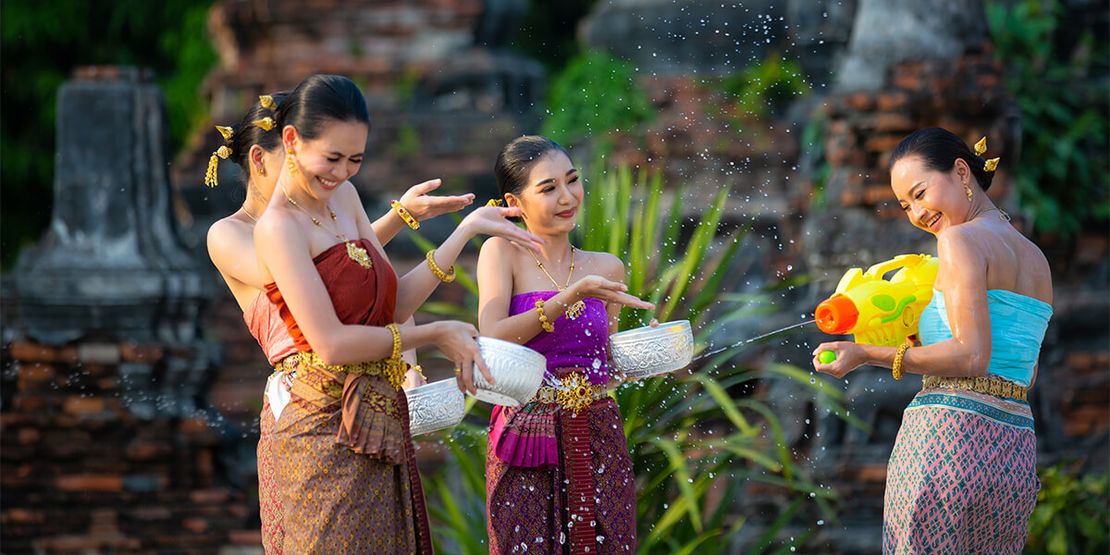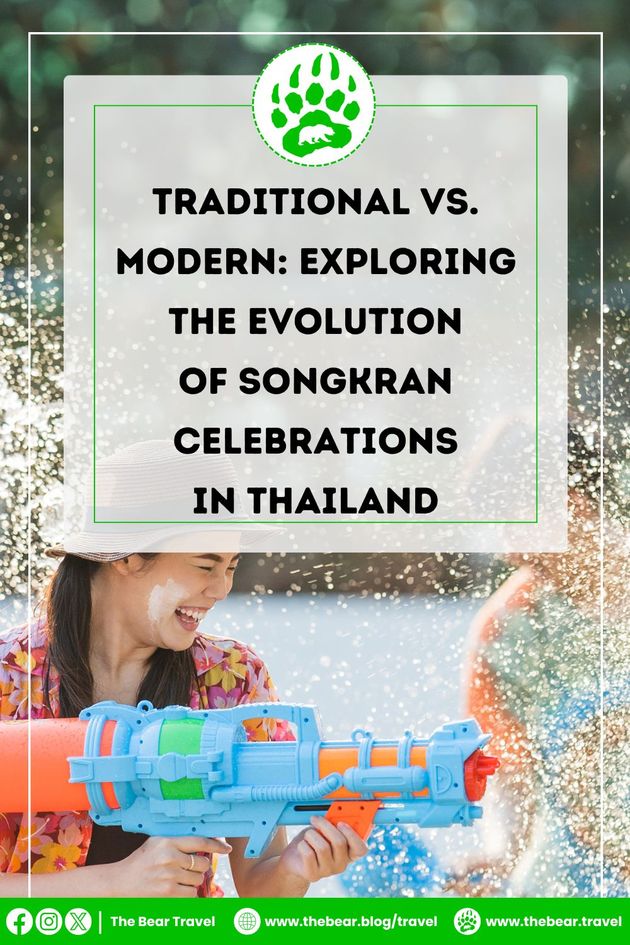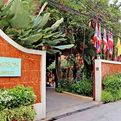Traditional vs. Modern: Exploring the Evolution of Songkran Celebrations in Thailand
If you've ever dreamed of joining the world’s biggest water fight, there’s no better place to be than Thailand in April. The Songkran Water Festival—Thailand’s official New Year celebration—is more than just a national holiday. It’s a vibrant, emotional, sometimes chaotic, always unforgettable mash-up of ancient traditions and modern-day madness.
As someone who’s been lucky enough to experience Thailand's traditional festivities like Songkran firsthand (and get soaked more times than I can count), I can tell you this: it’s not just about water fights. Behind the super soakers and street parties lies a deep cultural heartbeat—one rooted in Buddhist beliefs, family values, and Thai heritage.
But here’s the twist: Songkran in Thailand today doesn’t look like it did 50 years ago. It has evolved, adapted, and turned into something that somehow balances reverence and rave, ritual and rave foam parties.
So, if you're curious about how the traditional meets the trendy—and how locals and travelers alike continue to fall in love with it—stick with me. This is the ultimate guide to the evolution of Songkran, from past to present.
🍀 Curious Bear Trivia: From ancient blessings to modern foam parties, one thing hasn’t changed: water has always been at the heart of Songkran.
Looking Back: How Songkran in Thailand Began
If you’ve ever planned to travel to Thailand in April, chances are you’ve heard whispers (or loud blasts 💦) about Songkran. This Thai New Year celebration runs from April 13 to 15, and trust me—you won’t find anything quite like it. The vibrant streets across Thailand—from small towns to massive cities—burst into life with music, smiles, and, of course, buckets of water.
But behind all that fun lies a history that goes way deeper than most travelers expect. Songkran’s roots trace back to ancient Indian and Buddhist traditions, introduced to Thailand centuries ago by monks. The word "Songkran" comes from the Sanskrit word, which means "transformation" or "astrological shift," marking the transition into a new year and a fresh beginning.
Water became the centerpiece of Songkran not just for cooling off in the April heat—but for symbolic cleansing. In the past, locals would visit temples, offer food, and pour water gently over Buddha statues and the hands of their elders as a sign of respect and renewal. It was a spiritual reset button—a moment to let go of the past and step into the new year with a clean heart and good fortune.
Songkran Today: More Splash, More Flash
Fast-forward to today, and Songkran has taken a wild (and very wet) turn. Don’t get me wrong—the traditions are still here, but now they’re surrounded by giant water battles, music festivals, and LED-lit street parties that draw locals and tourists from all over the world.
In hotspots like Bangkok (Krung Thep Maha Nakhon), Chiang Mai, Pattaya, and Phuket, you’ll find everyone—from young kids to grandmas—armed with super soakers, battling it out in joyful chaos. But along with the fun, temples still open their doors for merit-making and traditional rituals, creating this beautiful contrast between the sacred and the splashy.
🍀 Curious Bear Fact: In 2011, Songkran made it into the Guinness World Records as the “largest water gun fight in the world.” Yup, that’s how big it’s gotten.
Songkran Then & Now: Bridging Generations Through Water
If there’s one thing that makes Songkran truly special, it’s the way it balances the past and the present so seamlessly. You’ll find a quiet temple corner just a few blocks from a full-blown street party—both celebrating the same occasion, just in their own unique ways.
Traditionally, Songkran has always been about spiritual cleansing and renewal. Families wake up early to visit temples, offer food to monks, and pour fragrant water over Buddha statues. One of the most heartfelt customs still practiced today is “Rod Nam Dum Hua,” where younger Thais pour scented water onto the hands of their elders as a sign of respect and blessing. It’s calm, humble, and rich with meaning.
At the same time, you’ve got the more modern scene—super-soakers in full blast, foam cannons in party zones, and DJ-led water fights that feel more like a summer music festival than a cultural ritual. Bangkok’s Khao San Road, Chiang Mai’s Old City moat, and Pattaya Beach become splash zones where locals and travelers let loose in the April heat.
But here’s the real beauty: Songkran doesn’t choose between old and new. For me, it embraces both. And somehow, that blend keeps the festival relevant, exciting, and emotionally grounding all at once.
How Tourism Helped Songkran Evolve (Without Losing Its Soul)
Thailand’s tourism industry didn’t just boost Songkran’s popularity—it definitely transformed it. What was once a localized, temple-centered New Year tradition is now a globally recognized celebration drawing millions of visitors each year.
To meet that growing audience, cities across Thailand leveled up. Event organizers introduced everything from S2O Music Festivals and cultural parades to water-themed concerts with international DJs. Places like ICONSIAM and CentralWorld in Bangkok or Tha Phae Gate in Chiang Mai aren’t just tourist spots during Songkran—they’ve become stages for cultural fusion.
But even with all the glitz, the heart of Songkran still beats strong. Most events still incorporate elements of traditional ceremonies—like water-blessing rituals, community merit-making, or temple visits in the mornings—ensuring that the festival remains anchored in Thai values.
Plus, tourism plays a significant role in sustaining the country’s economy and shining a global spotlight on Thailand’s heritage. It’s a perfect example of how a festival can grow with the world without forgetting where it came from.
🍀 Curious Bear Fact: UNESCO has officially recognized Songkran as part of Thailand’s Intangible Cultural Heritage—another reason to celebrate it with joy and respect!
Preserving Songkran for Future Generations
So, what does the future of Songkran look like?
It’s bright—but only if we nurture the balance between honoring heritage and embracing modernity. For the younger generation and future travelers, learning about Songkran isn’t just about joining a water fight. It’s about understanding the rituals, participating in temple visits, and recognizing the values behind each splash.
The good news? Thai communities across the country are doing just that—keeping old traditions alive while making room for new, inclusive experiences. Whether it’s through school programs, local ceremonies, or just stories passed down in families, the essence of Songkran is still being shared.
As travelers, expats, or even curious onlookers, we can be part of that, too. Attend the music festivals, yes—but also pause for a moment to visit a temple, pour water over a Buddha statue, or offer blessings to an elder. Because the best way to celebrate Songkran is to respect where it came from while enjoying where it’s going.
🍀 Curious Bear Reflection: The real magic of Songkran is how it lets us live in two worlds—where a playful splash carries the weight of centuries and joy feels like a blessing shared by everyone. That’s the kind of cultural celebration worth protecting, evolving, and passing on.
Let's Enjoy the Eternal Traditions of Songkran!
No matter how wild the parties get or how global the vibes become, Songkran’s heart is still Thai—full of meaning, rooted in tradition, and radiating pure joy.
It’s one of those rare festivals where an ancient blessing and a splash of cold water can exist in the same breath—and both are equally unforgettable. Whether you’re offering flowers at a temple or dancing in soaked sneakers at a DJ foam party, you’re part of something bigger: a festival that’s managed to evolve without losing its soul.
So here's to keeping that balance alive. Let the next generation inherit more than just water guns and holiday breaks—let them inherit the stories, the spirit, and the shared sense of community that make Songkran more than just a celebration. It’s a feeling. A connection. A cultural heartbeat that keeps flowing, year after year.
And as long as we keep honoring both the sacred and the silly—Songkran will never lose its magic.
📍Pin This for Later!
- Cherish (Verb)
- Definition:
- to protect and care for someone or something lovingly
- Example:
- "Many Thai families still cherish the traditional Songkran rituals passed down from their elders."
- "Many Thai families still cherish the traditional Songkran rituals passed down from their elders."
- Definition:
- Dimension (Noun)
- Definition:
- an aspect or feature of a situation, idea, or experience
- Example:
- "Adding modern music festivals to Songkran introduced a new dimension to the celebrations."
- "Adding modern music festivals to Songkran introduced a new dimension to the celebrations."
- Definition:
- Juxtapose (Verb)
- Definition:
- to place two things close together with contrasting effect
- Example:
- "The way traditional temple blessings juxtapose wild street water fights makes Songkran truly unique."
- "The way traditional temple blessings juxtapose wild street water fights makes Songkran truly unique."
- Definition:
- Modernity (Noun)
- Definition:
- the quality or condition of being modern or contemporary
- Example:
- "Modernity has brought exciting energy to Songkran, blending global trends with local traditions."
- "Modernity has brought exciting energy to Songkran, blending global trends with local traditions."
- Definition:
- Tapestry (Noun)
- Definition:
- a complex and rich sequence of events or elements woven together
- Example:
- "Songkran is a cultural tapestry made up of rituals, music, food, and community."
- Definition:
🐻 Reminder from The Bear Group
This article is updated as of April 2025. We keep this guide fresh and accurate so you can experience Songkran in Thailand like a pro. Celebrations, travel costs, and event details can change due to seasonality, government updates, and tourism trends. While we do our best to provide reliable information, we recommend checking local sources for the latest information on events, accommodations, and transportation before your trip.
All images in this article comply with GDPR and copyright regulations. We prioritize using original and credited visuals to bring the Songkran spirit to life. If any updates are needed, The Bear Group will ensure accuracy and proper attribution.
Experience like a true local 🇹🇭 Plan smart. Travel happy. And get ready to be soaked! 💦
Marc Tubelleja (Curious Bear)
Driven by insatiable curiosity, Marc is a fun-to-be-with pioneer in digital evolution. On a mission to shake things up, Marc brings expertise in digital nomadism, global adventures, and supporting LGBT and PWD communities. With a passion for inclusivity and creating impactful messages, Marc turns cool ideas into action, ensuring everyone’s voice is heard while having a blast transforming the digital world.
The Bear Travel | Experience like a Local
A fast-growing Thailand Travel Blog written by Expats and Thais since 2017. We will share our experiences and ideas from an insider point of view for you to create your own unique Thailand experience.
For the latest news and events about The Bear Travel, follow us on Facebook, Instagram, Twitter, Pinterest, or YouTube.
For any issues, concerns, or queries, don’t hesitate to CONTACT us.
Recommended for you
In Search of Art Tour: Enjoy the Creative Side of Bangkok
Sky, The Bear Traveler
Top 10 Best and Most Popular Thailand Golf Courses
Rowan (Guinness Bear)
How Thailand Makes a Dream Holiday for Lesbian Couples?
Alexa (Lesbian Bear)

















